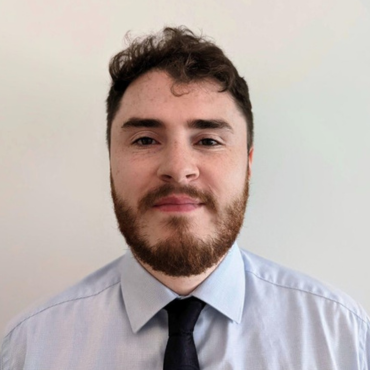Q&A with Ross O'Carroll
(opens in a new window)ross.o-carroll@ucdconnect.ie
What were your primary areas of research?
Spinal cord injury (SCI) is a devastating disease globally, with no curative therapy currently available. My MD research, under the supervision of Dr Dearbhaile Dooley, focused on understanding the role of microglia, the immune cells of the central nervous system (CNS), in traumatic spinal cord injury (SCI). Using a combination of in vitro and in vivo laboratory-based experiments and imaging techniques, we investigated how microglia respond to inflammatory stimuli and how we can ameliorate this response. We found that the cytokine interleukin (IL)-13 can reduce potentially harmful inflammatory responses in microglia, highlighting a key therapeutic target in the treatment of SCI. We also developed two key experimental systems; one was ‘ThermoCyte’, an open-source temperature control system for live-cell imaging of microglia in physiological conditions; the second was a novel surgical implant used to facilitate miniaturised fluorescence microscopy in a mouse model of SCI. These advancements provide valuable insights into SCI pathology, and importantly open avenues for translation into therapeutic intervention in the clinic.
What were some of the highlights of your experience as an MD student?
One of the highlights for me as an MD student was getting to work with cutting edge imaging technologies such as miniaturised fluorescence microscopy. Working with these technologies alongside expert colleagues was a privilege, and I have caught the ‘imaging bug’ for sure! Another highlight was blending my research work with teaching experience, as an anatomy demonstrator teaching basic neuroscience, and as a clinical tutor teaching general medicine. As I was able to integrate skills developed from my basic laboratory experience with formal 3rd level teaching, I gained a phenomenally well-rounded experience that has tremulously aided my career development in medicine. Finally graduating at the sunny UCD lake was the absolute highlight, especially after missing my undergraduate ceremony due to the pandemic!
Do you have any advice for those considering undertaking an MD?
The most important thing about doing doctoral-level research in my opinion is that you have a fundamental interest in the field. For me, neuroscience was always my passion, making my project an obvious choice. The work can be very difficult, especially when you’re balancing complex experiments, clinical responsibilities and a significant teaching load all at once. To mitigate this, make sure you research what you are really passionate about and the experience will be very enjoyable. In addition, preparation and organisation are key, so connect with your potential supervisor early to get an idea of their work style and research focus, and whether they align with your own research goals. Research is seldom straightforward, so being well-read, adaptable, resourceful, and always having an open mind regarding your hypothesis is crucial. As a clinician, starting from scratch in a lab-based doctorate is challenging, but being able to learn from the best in UCD made the whole process thoroughly rewarding and worthwhile, and has imparted skills I will use for the remainder of my career. I’d do it again in a heartbeat!
What was great about doing your MD at UCD?
Having also completed my undergraduate medical degree at UCD, I can attest to the wealth of friendly and renowned research staff in the School of Medicine, who provide tremendous expertise and support. In my lab, I was privileged to work alongside my supervisor Dr Dearbhaile Dooley, post-doctoral researcher Dr James Reynolds and many fellow doctoral students, who are gifted teachers and invaluable colleagues. Without them, my research would have been impossible. Facilities in UCD are also world-class, with excellent availability of core facilities with cutting-edge technologies such as high-content screening systems and high-resolution confocal microscopes. The research culture in the School of Medicine is friendly and professional, and I was extremely lucky to have St. Vincent’s University Hospital (SVUH) in such close proximity to engage in teaching and professional development activities alongside my research.
Are there any relevant links to your published work or other resources that you would like to share?
View Ross O'Carroll's profile (opens in a new window)here.